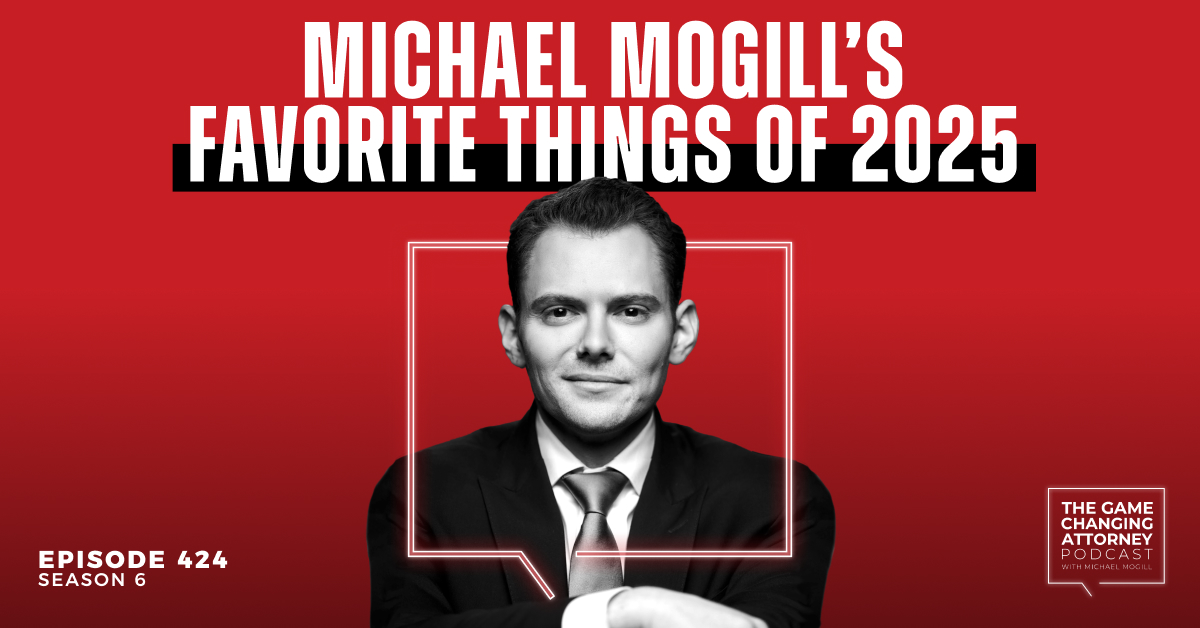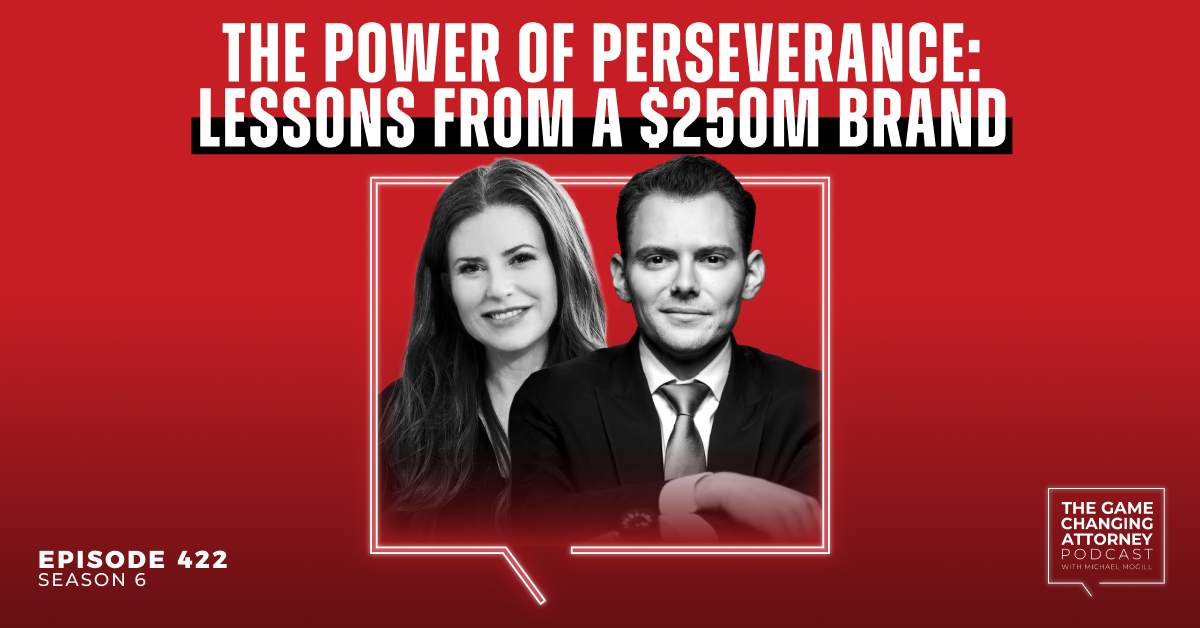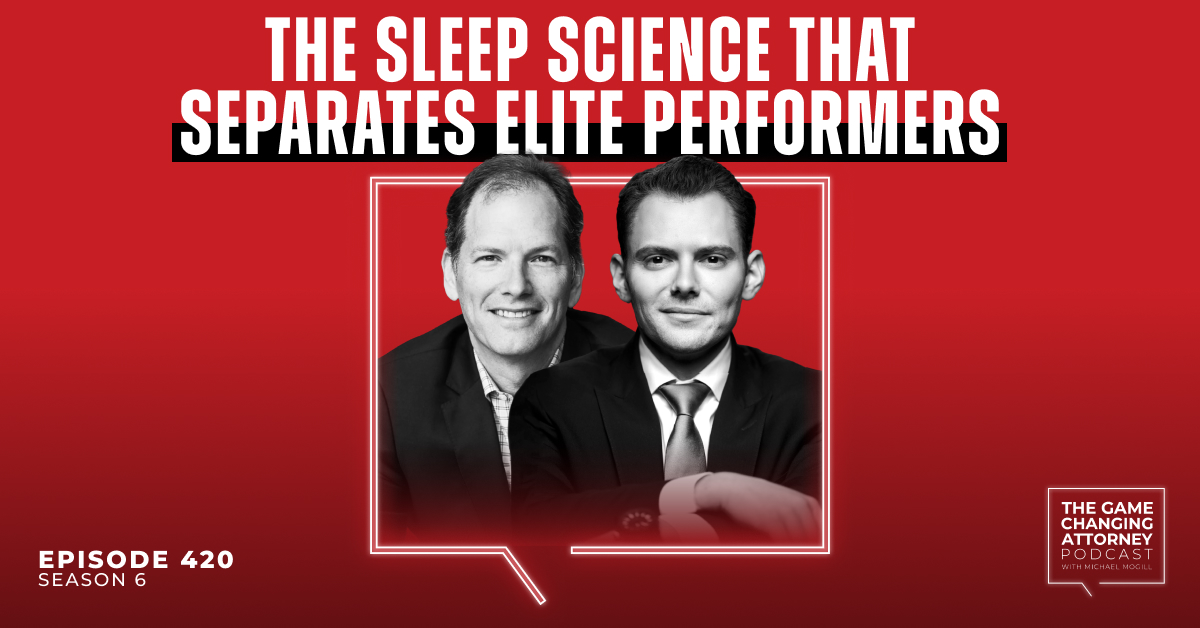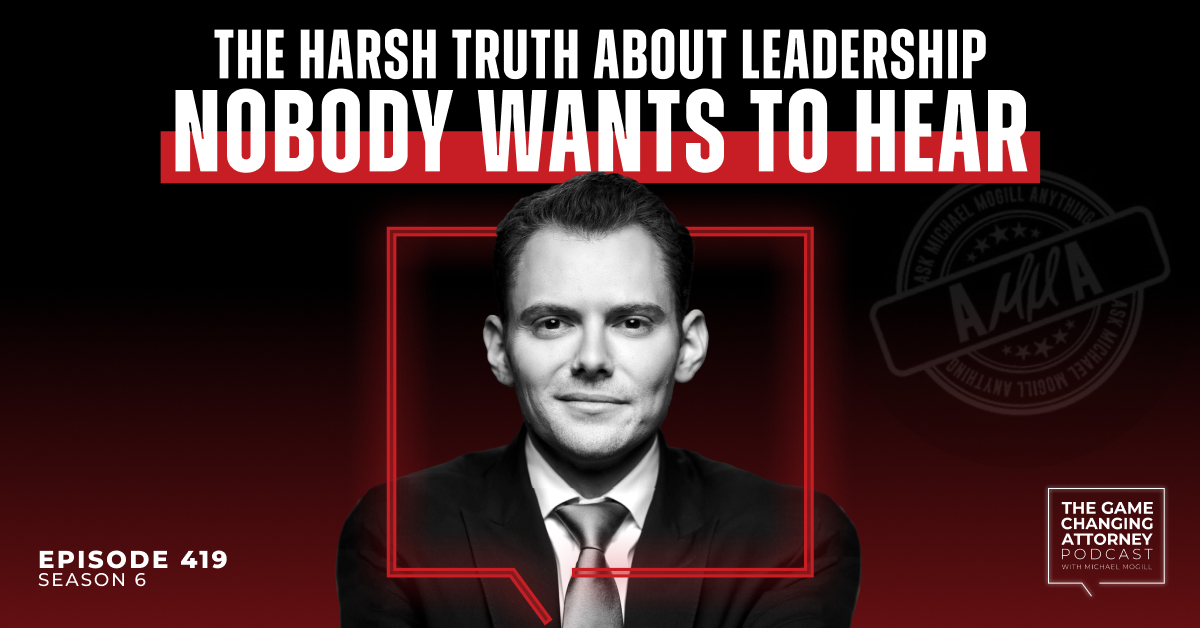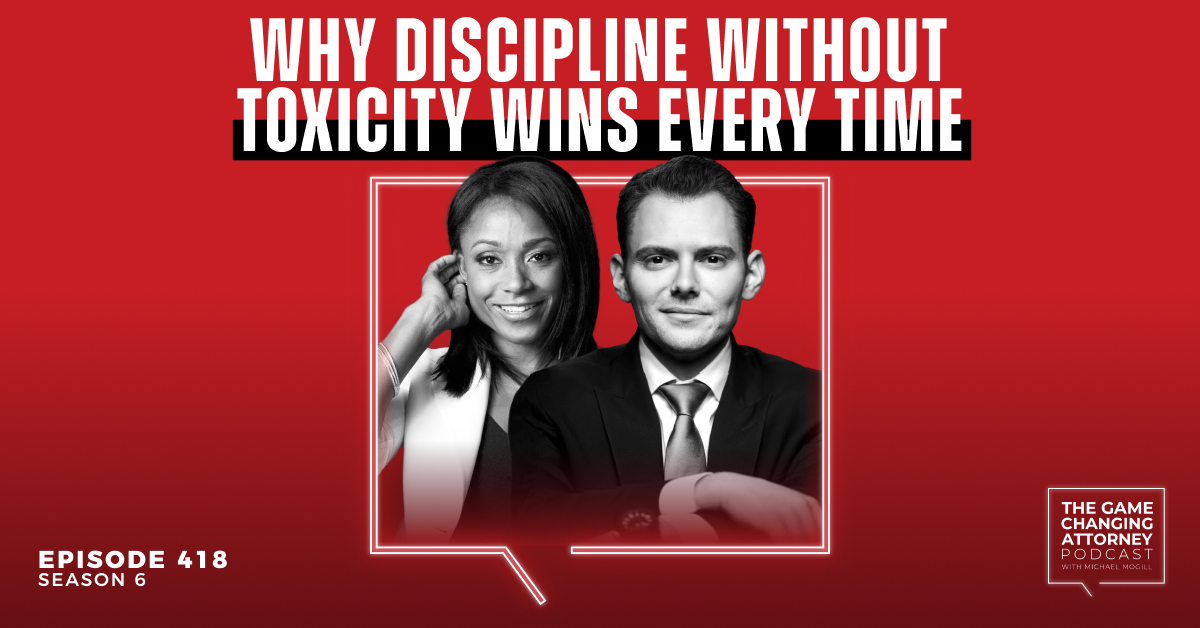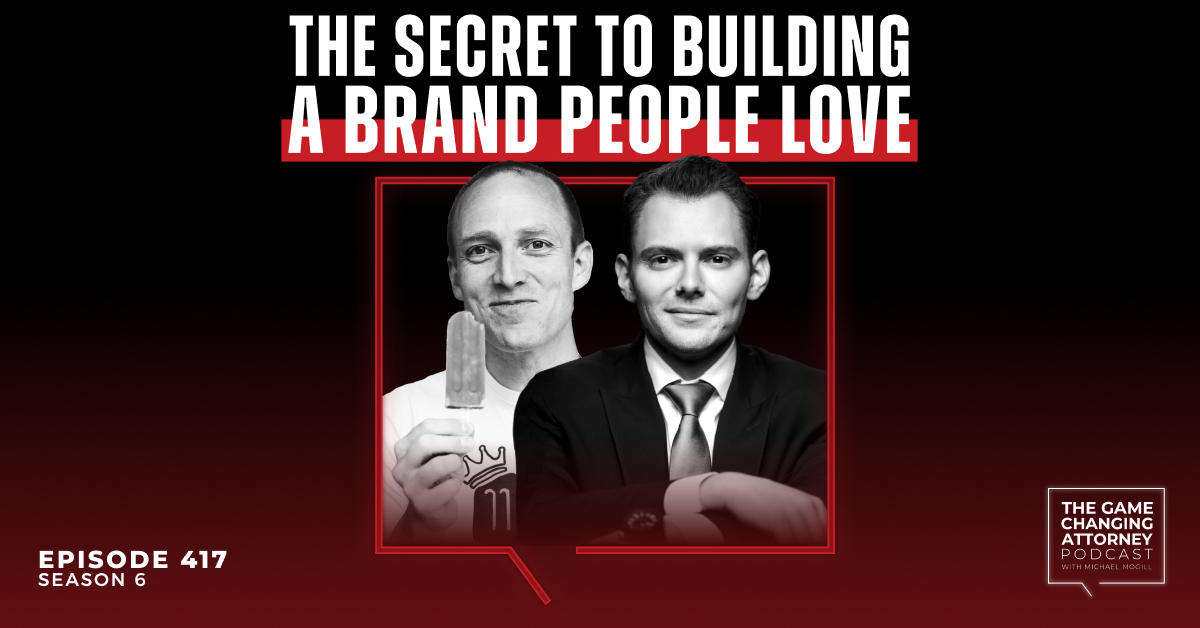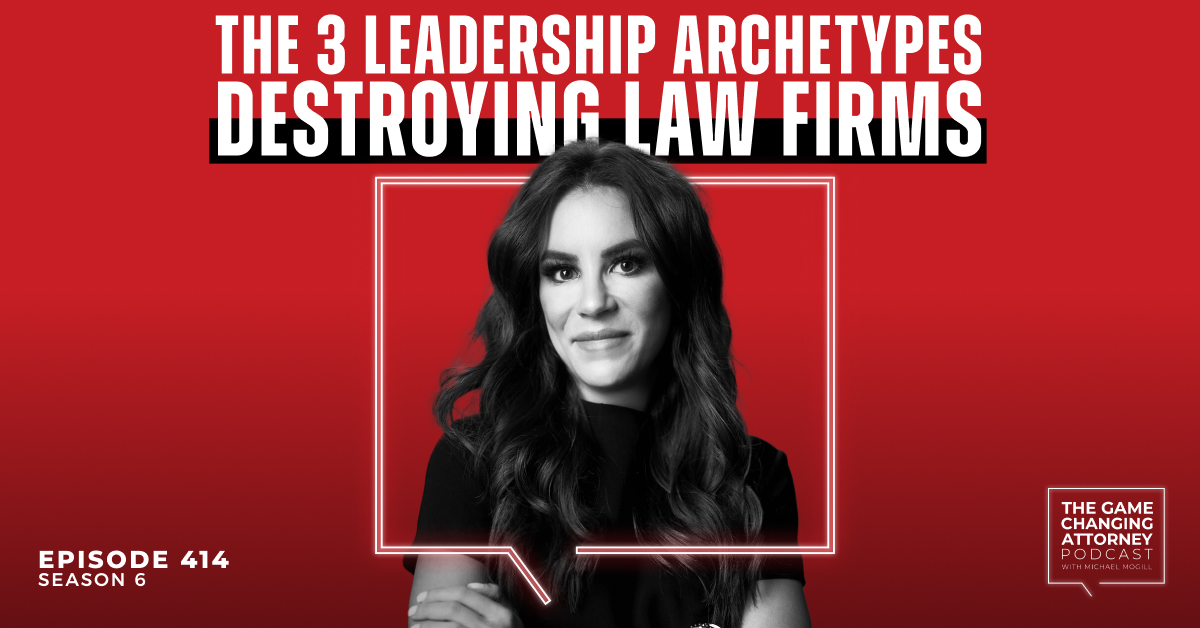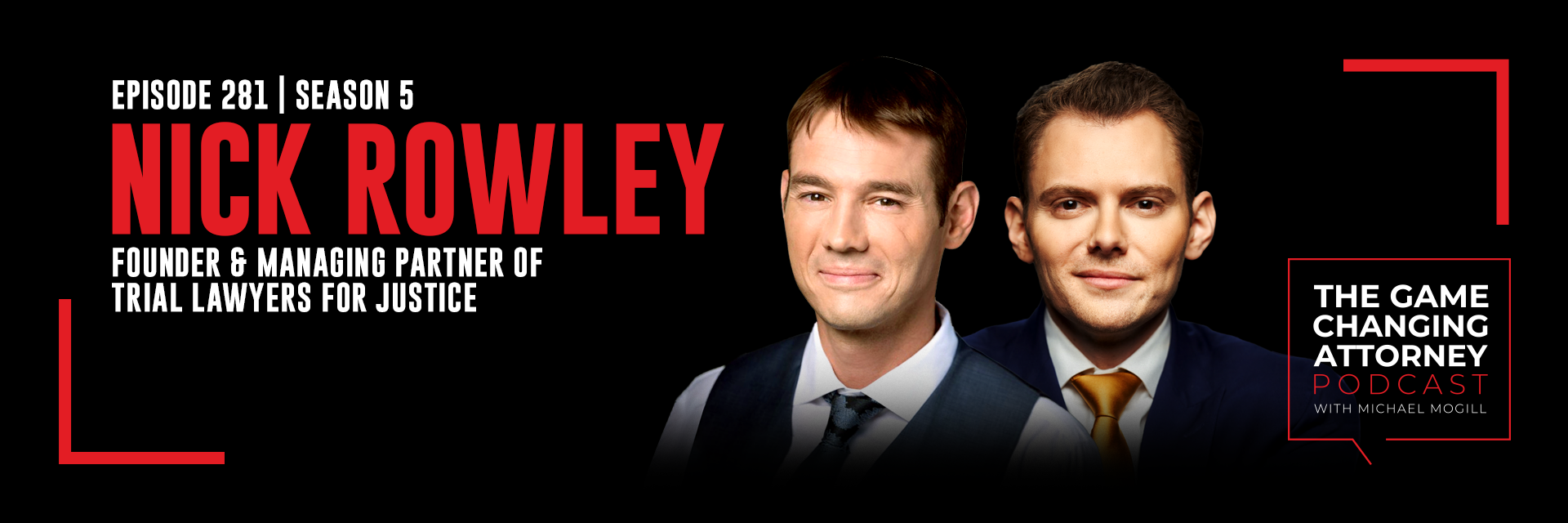
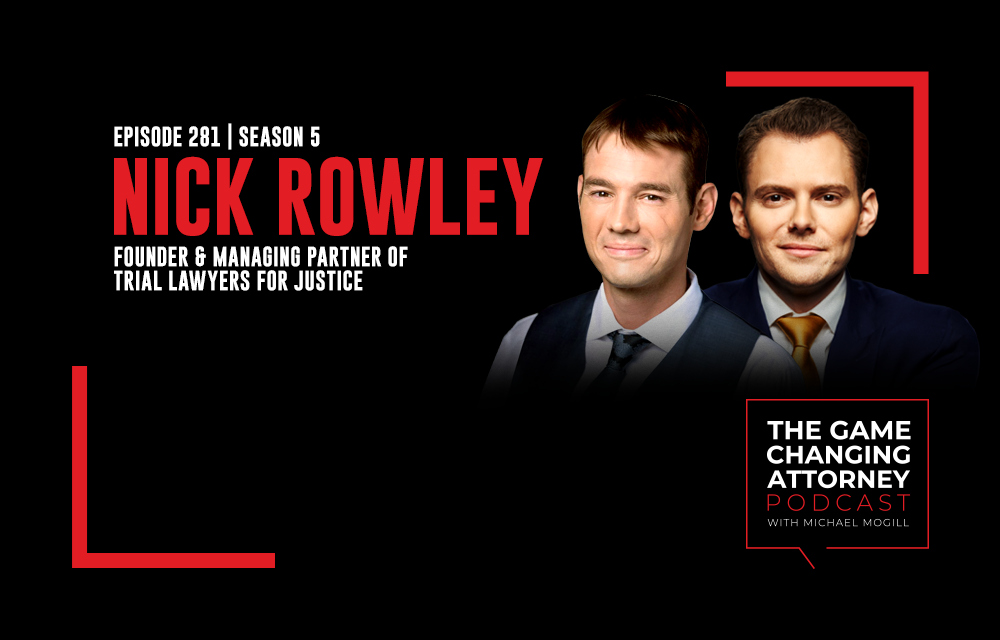
Episode 281 — Nick Rowley — Brutal Honesty in Action: The Key to Legal Victory
Are you letting your failures define you, or are you using them as fuel for your success?
Nick Rowley, a renowned trial attorney and founder of Trial Lawyers for Justice, has faced more setbacks than most. But instead of succumbing to adversity, he transformed it into a driving force to win over $1.5 billion in verdicts and settlements.
This isn’t just another success story — it’s a masterclass in resilience, accountability, and brutal honesty.
In this episode of The Game Changing Attorney Podcast, Nick joins Michael Mogill to reveal:
- How to turn personal and professional failures into stepping stones for monumental success
- The power of brutal honesty and why it’s crucial in the courtroom
- The role of discipline, focus, and vulnerability in achieving landmark verdicts
Listen & Subscribe
Show Notes:
A self-proclaimed juvenile delinquent. “I always got in trouble and never fit within the realms of the institutions that I was put in. This was the case growing up and even during law school. I really didn’t like the institution of it. I even spoke out against the law professors and things that I thought were going wrong within the school and actually represented a number of students as a student representative in a plagiarism case. I thought it was unfair, so I wrote a kind of manifesto and discussed what I thought of the school and I believed that everything the school did was wrong. I put a copy in everyone’s inbox. I was able to help a bunch of students and even kept them from getting expelled.”
A man of many talents. “When I was in the military, I was one of three out of 76 people that qualified to train and become a pararescueman, which is a special forces unit within the United States Air Force. As I went forward with that, I turned out to be colorblind which disqualified me for military freefall school. But as a pararescueman, that meant I was also a medic. I did medic training and then went through some of that pipeline over the time, and instead of my original goal of killing bad guys, I got to do something different and save the good guys, which I really enjoyed.”
How to handle hardship “Do you blame the jury? Do you blame the judge? Do you blame the witnesses? Or do you look at yourself and say, ‘What’s my role in this?’ I have this rule that if something goes bad, something goes bad. If you find a way to accept full responsibility for it, even if your role is only one percent, you accept full responsibility for it. It’s tough to do, but that’s what’s going to help you move forward, make you better, and achieve what you’re trying to accomplish. Accept full responsibility for whatever goes wrong.”
Nick’s life motto. “Nothing’s going to keep me down. There’s nothing you can do to stop me. You could kill me, but that’s the only thing you can do. So if you can’t kill me, you’re never going to be able to stop me — and that became my motto.”
Staying grounded. “If you keep trying tough cases and get your ass kicked every once in a while, that’ll keep the ego in check. But when you try a lot of tough cases that people say are unwinnable and you keep winning them, it can get to you in the opposite way too. I’ve gotten carried away with myself before, and I figured I could pull another rabbit out of the hat. When that doesn’t happen, however, I’ve had to look at myself and say, ‘Should I have tried that case differently or was I just being too cocky?’ I’ve been too cocky before, so it’s always a struggle that I’m constantly working on.”
Commonalities of great trial lawyers. “I think what the best trial lawyers have in common is that we all have a chord within us that vibrates all the time. They all have this inability to put up with injustice. When you see people being treated wrong or devalued in their cases, there’s a fire inside of you that’s always burning to make it right — and it’s not just a pilot light.”
Trust is everything. “If I trust you, you’re going to start trusting me. It’s just part of the way we work as human beings. It’s really about making yourself vulnerable by giving strangers and people who have doubts and who have the right to feel and think however they want. They’re on opposite sides of things, and nobody’s willing to listen to another person when you take brutal honesty and you bring that into the courtroom. People tend to let down their guard and start listening to each other and caring about one another, and then connections start to form and suddenly everything becomes possible through trust.”
Keep your guard up. “I’ll trust you with money, but to trust you with my vulnerability or my well-being emotionally is another story. I’m very protective and always on guard, so if something goes wrong or there’s an argument, I just shut down. I put a wall up to protect myself and those around me. I can be loving and engaging, but if something goes wrong, I can just shut right off. I’m trying to work on that.”
What does being a game changer mean to you? “A game changer is always breaking the mold. We as a society put ourselves in these molds, and you’ve got to do everything you can to keep breaking those molds.”
Connect with Michael
- Text directly at 404-531-7691
